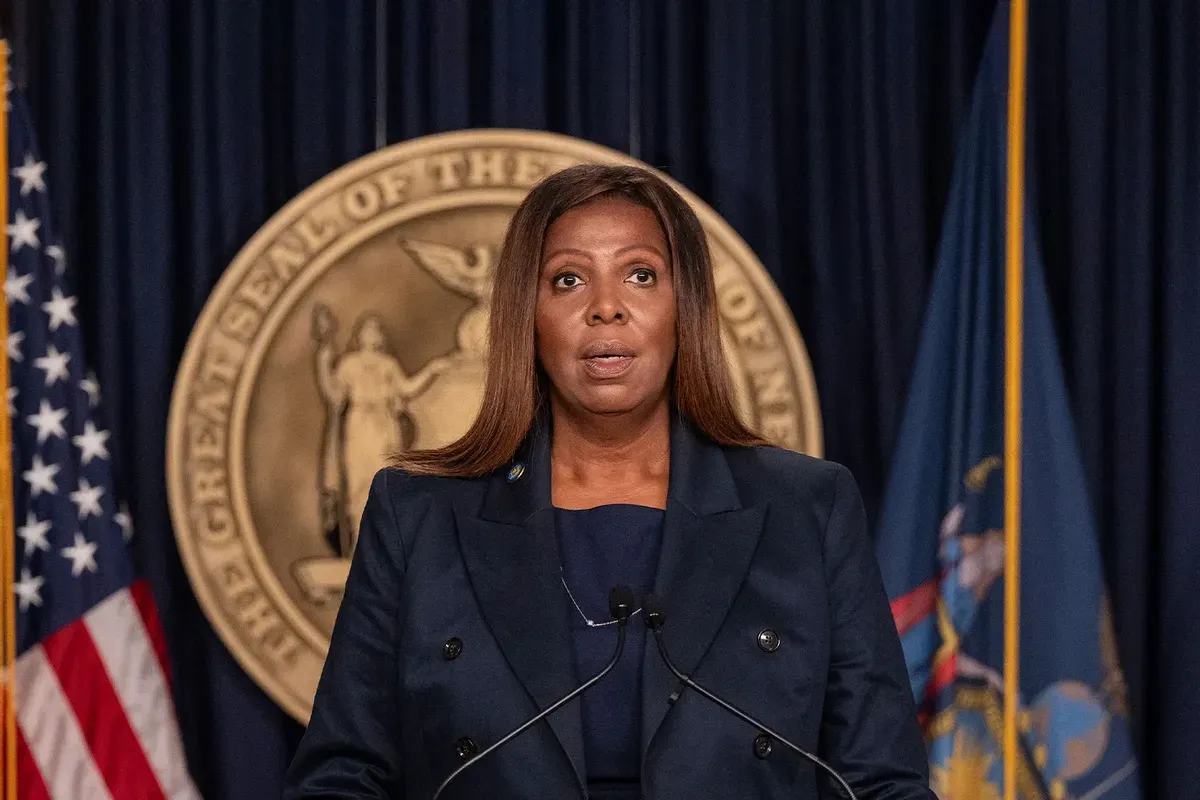New York AG Raises Concerns Over Bitcoin and U.S. Dollar Stability

New York Attorney General Letitia James has stepped into the spotlight with a pressing message for Congress, calling for swift action to regulate the rapidly expanding world of Bitcoin and crypto.
In a detailed letter to congressional leaders, James raised concerns about the potential risks digital assets, particularly Bitcoin, pose to the U.S. dollar’s longstanding dominance in global finance. Her plea underscores a broader need for federal oversight to shield investors from fraud while addressing the economic and security implications of an unregulated crypto market. As digital currencies gain traction, James argues that the time for decisive regulation is now.
In her correspondence, James emphasized that the absence of a robust federal framework leaves the door open to significant vulnerabilities. She pointed to the unpredictability of cryptocurrencies and their susceptibility to fraudulent schemes as key issues demanding attention. With Bitcoin increasingly viewed as a viable alternative for cross-border transactions, James warned that its rise could challenge the U.S. dollar’s supremacy. This perspective aligns with sentiments from BlackRock CEO Larry Fink, who recently suggested Bitcoin might serve as a hedge against the dollar amid growing fiscal uncertainties and inflationary pressures in the U.S. economy. For James, the stakes are high, and the need for supervision is clear.
Beyond economic concerns, James highlighted the darker potential of unchecked digital assets. She cautioned that without proper controls, cryptocurrencies could become tools for funding criminal enterprises and adversarial regimes. While acknowledging the innovative possibilities these technologies offer, she stressed that their misuse poses a tangible threat. “Millions of New Yorkers actively engage in the buying, selling, or holding of cryptocurrency and other digital assets, and they deserve additional safeguards,” James stated, reinforcing her call for a balanced approach that fosters innovation while curbing abuse.
Stay In The Loop and Never Miss Important Crypto News
Sign up and be the first to know when we publishStablecoins and the Push for Investor Safeguards
A significant portion of James’s appeal focused on stablecoins, a category of cryptocurrencies designed to maintain a steady value by being tied to assets like the U.S. dollar.
She urged Congress to establish regulations requiring stablecoin issuers to maintain a U.S. presence and ensure their tokens are backed by dollars or treasuries. These assets play a critical role in facilitating value transfers across the crypto ecosystem, but James warned that without oversight, they remain ripe for manipulation and fraud. Her concerns reflect a broader unease about the stability and transparency of these financial instruments.
James also took aim at the growing prevalence of cryptocurrency scams, which have drained millions of dollars from investors nationwide. “Thousands of investors in New York and across the country have lost millions to cryptocurrency fraud that could be prevented with stronger federal regulations,” she explained. To combat this, she advocated for enhanced protections to deter deceptive practices and bolster confidence in the market.
Additionally, she expressed reservations about including digital assets in retirement accounts like IRAs, citing their volatility as a risk to long-term financial security. With recent moves by companies like Fidelity to introduce crypto-based retirement options, James’s stance underscores a cautious approach to integrating these assets into mainstream savings plans.
National security also factored into her argument, as she pointed to the anonymity of crypto transactions as a potential boon for illicit activities. To counter this, James proposed that cryptocurrency companies be required to register with a regulatory authority and adhere to anti-money laundering standards. Such measures, she argued, would not only protect investors but also strengthen the broader financial system.

